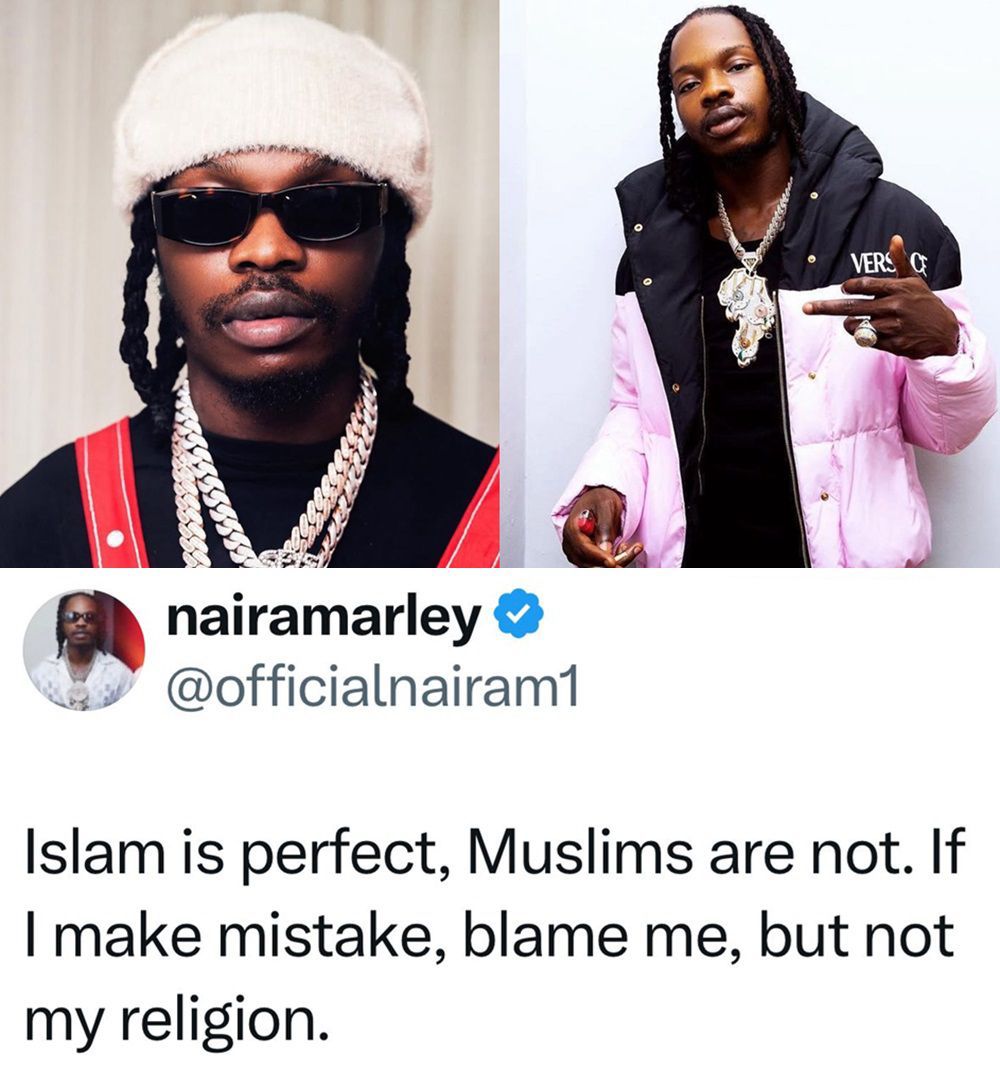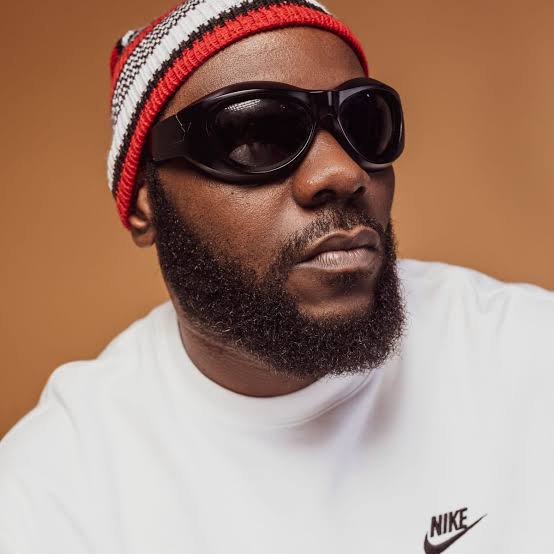
"Islam is Perfect, I Am Not" – Naira Marley Speaks on Religion and Personal Mistakes

Popular Nigerian singer, Azeez Fashola, widely known as Naira Marley, has once again made headlines with a powerful statement about his faith and personal actions.
The controversial artist took to social media to express his thoughts, declaring that Islam as a religion is flawless, but human beings, including himself, are not.
"Islam is perfect. If I make a mistake, blame me, not my religion," he wrote, sparking widespread reactions from fans and followers.
His statement, which quickly gained traction online, was seen by many as an attempt to separate his personal life from the teachings of Islam.
Over the years, Naira Marley has been at the center of numerous controversies, often drawing criticism for his lyrics, lifestyle, and public behavior.
Despite being a devout Muslim, his actions have sometimes been viewed as contradictory to the values of Islam, leading to backlash from religious individuals who question his influence on young people.
This recent statement appears to be a response to such criticisms, as he seeks to emphasize that his religion should not be judged based on his personal mistakes.
For many, the message resonated deeply, as it highlights the common misconception that a person's behavior always reflects their faith.
Supporters of the singer flooded his comment section with messages of agreement, applauding him for addressing the issue.
"True words. People always judge a religion by the actions of individuals. May Allah guide us all," one fan wrote.
Another commented, "No one is perfect. We should all strive to be better Muslims and not judge others unfairly."
However, not everyone was convinced by Naira Marley's words.
Some critics pointed out that while Islam may indeed be perfect, it is the responsibility of its followers to uphold its teachings in their daily lives.
"You can't say Islam is perfect and then live a life that contradicts its teachings," a user argued.
"Your actions matter because people look up to you. If you truly believe in Islam, then show it through your behavior," another person added.
Naira Marley's journey in the entertainment industry has been anything but conventional.
From his early days as an underground artist in the UK to his rise as one of Nigeria's most controversial musicians, he has always been a figure of intense scrutiny.
His music, often infused with street slang, raw lyrics, and rebellious energy, has made him a favorite among many youths who admire his fearless approach to life.
However, this same image has also earned him criticism from religious and moral watchdogs, who see his influence as a negative force.
Despite the criticisms, the singer has remained unapologetic about his choices, often using social media to address controversies surrounding his name.
His latest statement is not the first time he has spoken about his religious beliefs.
In previous interviews, he has expressed his love for Islam and his commitment to prayers, even though his lifestyle often appears at odds with conservative Islamic principles.
For some, this contradiction is difficult to reconcile, leading to ongoing debates about whether public figures like Naira Marley should be held to higher moral standards.
Religious scholars have weighed in on the matter, with some emphasizing the importance of separating a religion from the actions of its followers.
"Islam teaches peace, discipline, and righteousness. However, every Muslim is on their own journey, and we must be careful not to judge the religion based on individual mistakes," an Islamic scholar noted.
Others, however, argue that celebrities who openly identify with a religion have a responsibility to represent it well, as they influence millions of followers.
"In Islam, we are all ambassadors of the faith. If you are in the public eye, you should strive to set a good example," another scholar said.
Regardless of differing opinions, one thing is clear—Naira Marley's statement has ignited a broader conversation about faith, personal accountability, and the expectations placed on public figures.
The music industry has seen many artists struggle with balancing their faith and their careers.
From rappers in the United States who openly express their Christianity while producing secular music to African artists who navigate traditional beliefs alongside modern lifestyles, the conversation about religion and entertainment is not new.
In Nigeria, where religion plays a significant role in society, public figures often face intense scrutiny regarding their beliefs and actions.
Naira Marley's case is a reflection of this larger issue, where people struggle to separate a person's personal flaws from the principles of their faith.
While some argue that his statement is an attempt to absolve himself of responsibility, others see it as a reminder that human beings are not perfect and that religion should not be judged based on the actions of individuals.
As the conversation continues, one thing remains certain—Naira Marley is not backing down from expressing his views.
Whether he will take steps to align his lifestyle more closely with his religious beliefs remains to be seen, but his words have undoubtedly sparked an important dialogue about faith, accountability,
and the role of celebrities in shaping public perception of religion.


